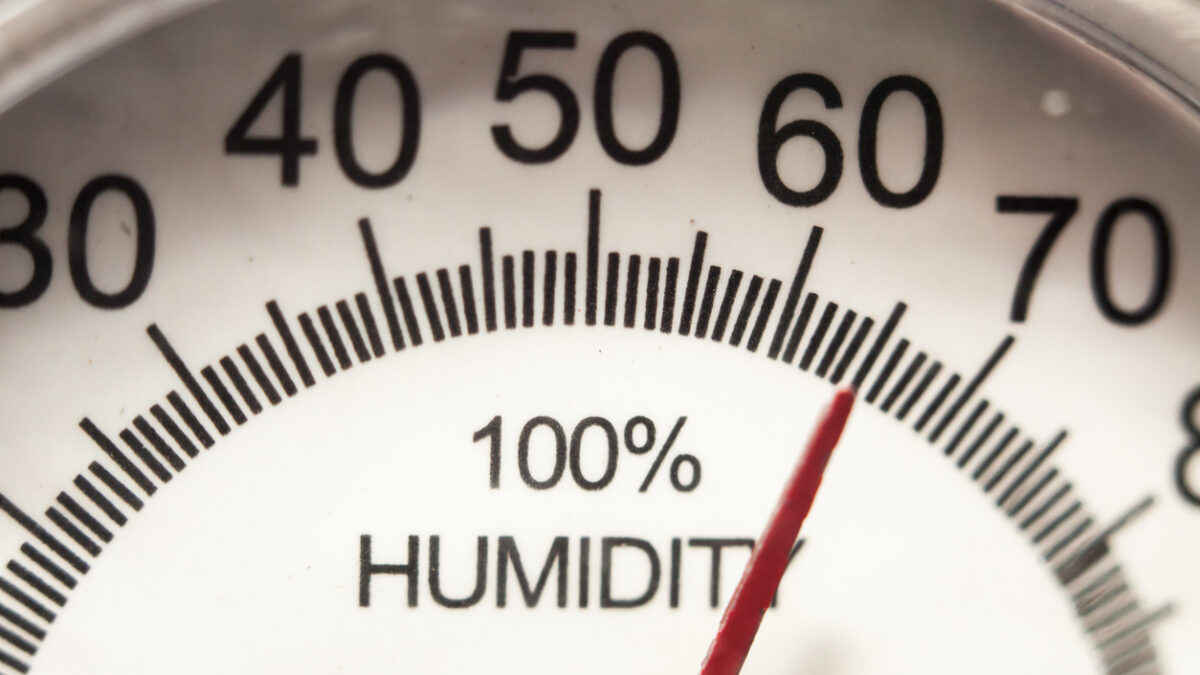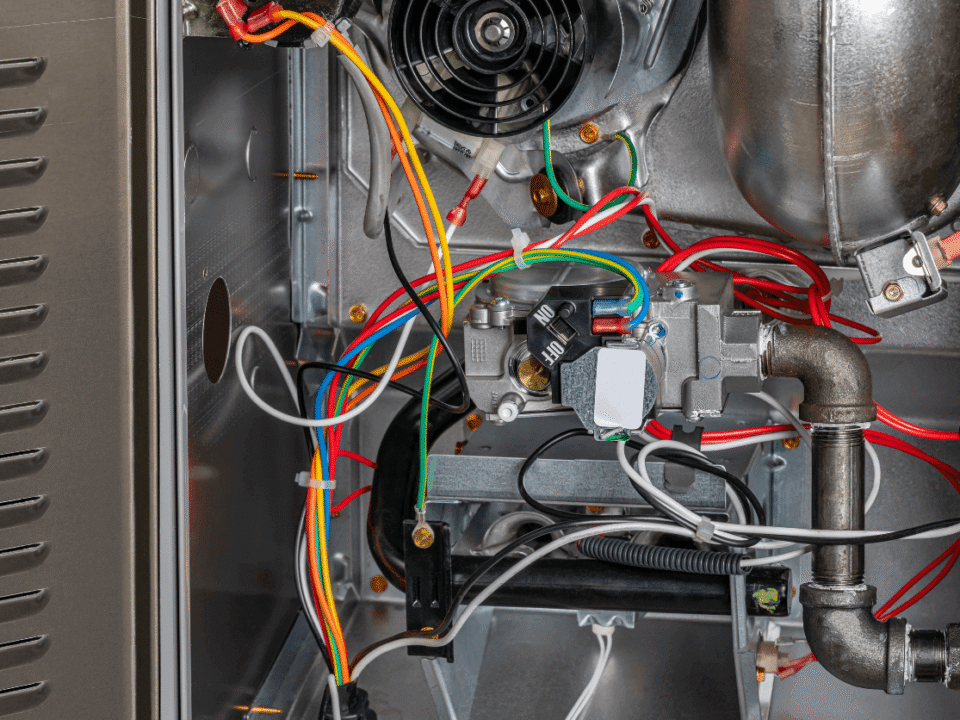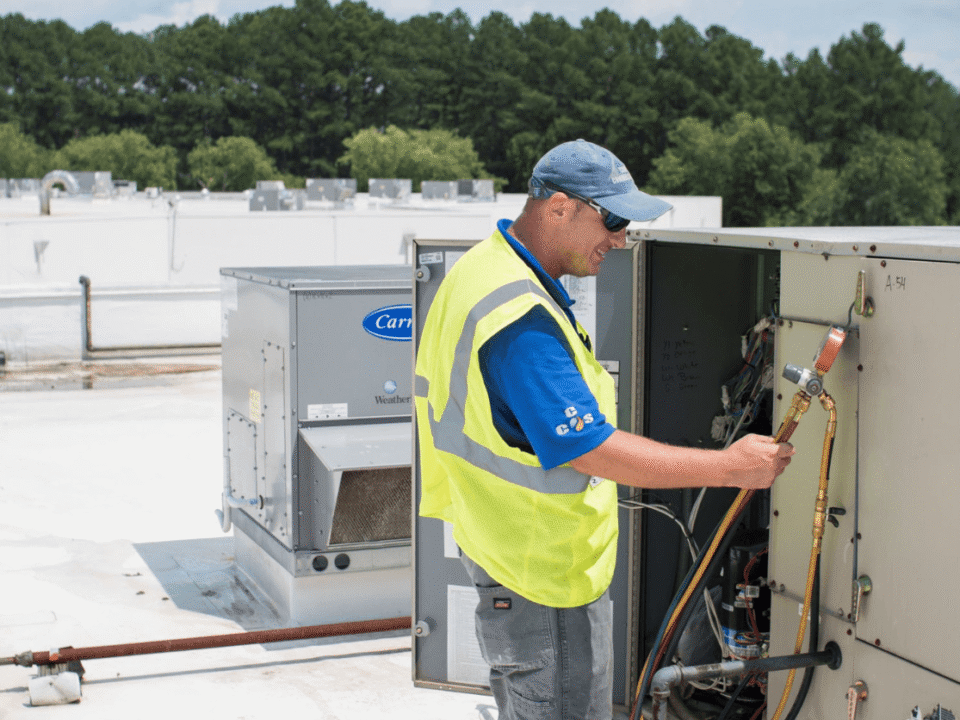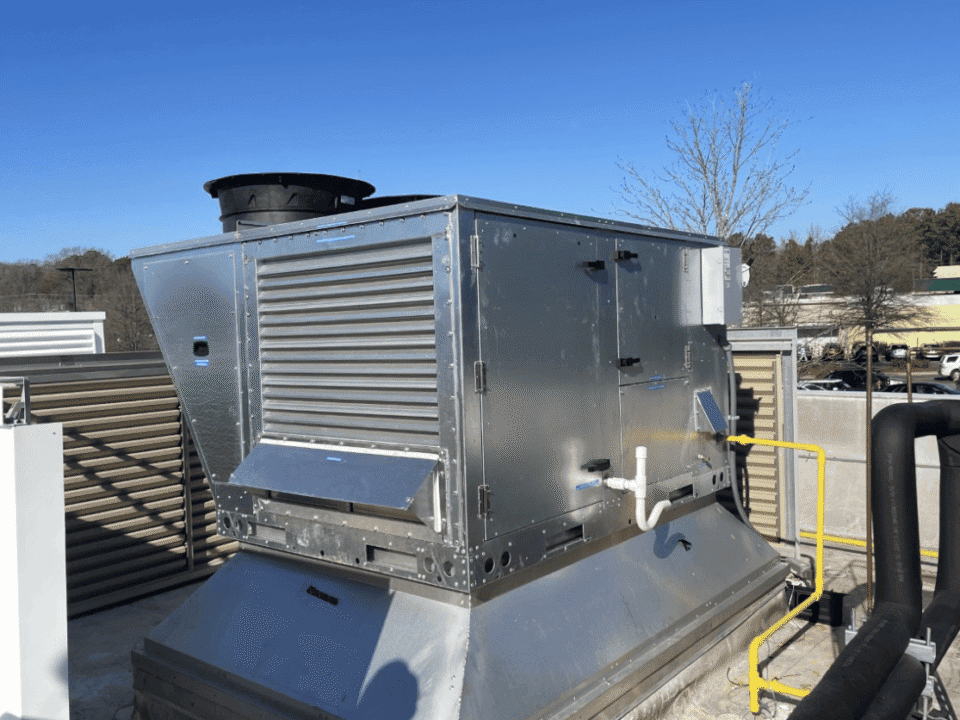
The Importance of Air Quality Testing for Your Raleigh Property
May 23, 2024
Tips for Reducing Energy Costs in Commercial Air Conditioning
June 27, 2024Understanding the Impact of Humidity on Your HVAC System in NC
Learn how humidity impacts air quality and your HVAC equipment
Living in North Carolina means dealing with humidity year-round. From hot and muggy summers to damp and chilly winters, the humidity levels can vary greatly, putting your HVAC system to the test. As a trusted HVAC company serving Raleigh, NC, we understand the unique challenges that humidity poses to both commercial and residential HVAC systems in our area.
In this post, we’ll delve into the significant impact humidity can have on your HVAC system’s performance and efficiency, and provide valuable insights on how to address these challenges effectively.
Effects of High Humidity
Humidity can play a significant role in the efficiency and effectiveness of HVAC systems, resulting in:
- Increased Energy Consumption
High humidity levels significantly impact the efficiency of your HVAC system, leading to increased energy consumption. When humidity is high, your HVAC system struggles to remove moisture from the air, resulting in longer run times and higher energy usage. As the system works harder to maintain a comfortable indoor environment, it consumes more electricity or fuel, ultimately reflecting in higher utility bills. Additionally, prolonged operation under such conditions puts unnecessary strain on your HVAC system, potentially leading to premature wear and tear and the need for costly repairs or replacements.
- Reduced Cooling Efficiency
High humidity levels not only make your HVAC system work harder but also reduce its cooling efficiency. When humidity levels are elevated, the air conditioner has to contend with both temperature and moisture, requiring more energy to achieve the desired cooling effect. This increased workload can lead to uneven cooling throughout your home or commercial space, resulting in uncomfortable hot spots and overall dissatisfaction. Moreover, prolonged exposure to high humidity levels can cause your air conditioner to operate continuously, putting it at risk of overheating and mechanical failure.
- Mold and Mildew Growth
Excess moisture in the air creates a conducive environment for mold and mildew growth, posing both health and structural risks. Mold spores thrive in damp conditions, and when allowed to proliferate, they can spread throughout your home or building, exacerbating respiratory issues and triggering allergies. Furthermore, mold and mildew growth isn’t limited to visible surfaces; they can infiltrate your HVAC system and ductwork, compromising air quality and causing foul odors. Over time, this can lead to significant damage to your HVAC components, necessitating costly repairs or replacements.
- Decreased Indoor Air Quality
High humidity levels contribute to decreased indoor air quality by trapping pollutants and allergens in the air. As moisture levels rise, airborne contaminants such as dust mites, pollen, and pet dander become more prevalent, exacerbating respiratory issues and allergies. Additionally, high humidity provides an ideal breeding ground for bacteria and viruses, further compromising indoor air quality and increasing the risk of illness. Poor indoor air quality not only affects your health but also diminishes the overall comfort of your indoor environment, making it essential to address humidity issues promptly.
Strategies to Manage Humidity
Effective management of humidity is essential for maximizing the performance and longevity of your HVAC system. In this section, we’ll explore various strategies to control humidity levels and optimize the efficiency of your heating, ventilation, and air conditioning system.
- Invest in a Dehumidifier
Adding a dehumidifier to your HVAC system is a proactive step in managing indoor humidity levels effectively. A dehumidifier works by removing excess moisture from the air, thereby improving comfort and reducing the workload on your air conditioner. By regulating humidity levels, you create a more comfortable indoor environment and alleviate issues such as clamminess and musty odors. Moreover, reducing humidity can help prevent mold and mildew growth, safeguarding your indoor air quality and the integrity of your home or building.
- Proper Ventilation
Ensuring proper ventilation is crucial for allowing excess moisture to escape from your home or commercial space. Proper ventilation helps maintain balanced humidity levels and prevents the buildup of moisture in enclosed areas. Utilize exhaust fans in kitchens and bathrooms to expel humid air outside, particularly during activities that generate moisture, such as cooking or showering. Additionally, consider installing a whole-house ventilation system to facilitate the exchange of indoor and outdoor air, promoting better air quality and reducing humidity levels throughout your property.
- Regular Maintenance
Scheduled maintenance is essential for keeping your HVAC system operating efficiently, especially in humid conditions. Routine maintenance tasks, such as changing air filters, cleaning coils, and inspecting for signs of moisture or mold growth, ensure optimal performance and longevity of your system. Dirty air filters and coils restrict airflow, impairing the system’s ability to remove moisture effectively and leading to increased energy consumption. By addressing any issues promptly and conducting preventive maintenance, you can mitigate the impact of humidity on your HVAC system and prevent costly repairs down the line.
- Upgrade to High-Efficiency Equipment
Consider upgrading to high-efficiency HVAC equipment that is specifically designed to handle the humidity levels common in North Carolina. High-efficiency systems utilize advanced technologies, such as variable-speed compressors and enhanced dehumidification capabilities, to maintain optimal indoor comfort while minimizing energy consumption. Investing in high-efficiency equipment not only improves comfort but also reduces energy costs and extends the life of your HVAC system. Moreover, these systems are often equipped with advanced filtration systems that help improve indoor air quality by capturing airborne pollutants and allergens, further enhancing the overall comfort and well-being of occupants.
Optimize Comfort with HVAC Solutions to Tackle Humidity
Humidity is a significant factor that can impact the performance and efficiency of your HVAC system, especially in a humid climate like North Carolina. By understanding the effects of humidity and implementing effective strategies to manage it, you can ensure optimal comfort, indoor air quality, and energy efficiency in your home or commercial space. If you have any questions or need assistance with your HVAC system, don’t hesitate to contact us. We’re here to help!



